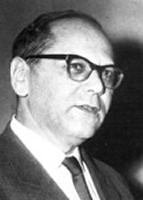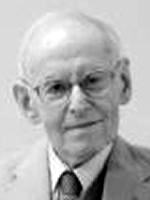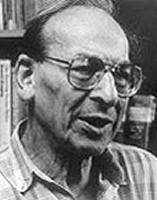|
Early on
the Israeli government viewed the ingathering of Jews from behind
the Iron Curtain — particularly from the Soviet Union — of vital
national interest. Prime Minister David Ben Gurion declared: “in our
policy towards Russia the position of the Russian Jews is the main
concern. Of course, three million Jews are involved. We could get
one million now, if they were allowed to leave.”
[1] In 1952, Ben-Gurion created
the nucleus of a special bureau to covertly encourage and facilitate
aliya (immigration to Israel) of Jews from the Communist
countries of Eastern Europe. Not part of the Foreign Ministry and
cloaked from public view by strict censorship, the bureau reported
directly to the Prime Minister. As the bureau grew it was evasively
alluded to as Lishkat Hakesher (לשכת הקשר)
Liaison Office or Nativ (נתב) Path
(aka, the Office With No Name) From now on termed “the Office”.
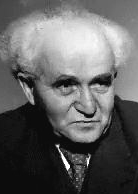 |
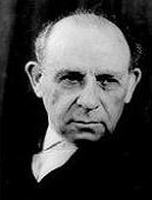 |
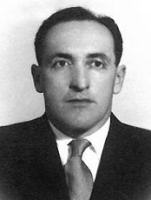 |
| David Ben Gurion |
Shaul Avigur |
Nehemyah Levanon |
To head
the Office, Ben-Gurion chose Shaul Avigur, an old associate and
confidant. Avigur (Meirov) was born in the Lithuanian city of
Dinburg in northwest Russia, in 1899 and made aliya in 1912. He
joined the Haganah, the Jewish self-defense force, in 1920, and
quickly rose to occupy important security and political positions in
the central command. During the 1940’s, Avigur headed two secret
organizations, Rekesh, an overseas arms procurement agency and
Mossad L’Aliya Bet, an organization that ran "illegal" Jewish
immigrants into Palestine. Avigur has been described as reclusive,
tough, secretive, work-centered and committed to maintaining the
political interests of Mapai (forerunner of Israel’s Labor party)
leadership [2].
Avigur retired in December 1969 and was succeeded by Nehemyah
Levanon (Nunka Levison), born in Estonia. Levanon had made aliya in
1938 and was among the founders of kibbutz Kfar Blum. In the early
1950's he joined the Office and in 1954 was posted to the Moscow
embassy. Less than two years
later he was expelled from the USSR, accused of conducting
clandestine operations. For details on posting of representatives of
the Office,
click here. Next, Levanon was groomed to participate in a project to foster Western
involvement in the cause of Soviet Jewry. He learned to speak
English and was sent under cover as a shaliach (representative of
the Jewish Agency) to England [3]. In 1965, he was posted to the
Israeli embassy in Washington and assumed charge of operations in
the United States. From 1970 till he retired in 1982, Levanon served
as head of the Office.
During the 1950's the Office worked to gather the low hanging fruit
behind the Iron Curtain: Polish, Bulgarian, Romanian and Hungarian
Jews. Shtadlanut — one of Avigur’s bedrock operational methods — was
employed. By means of secret negotiations and monetary payments
about 160,000 Jews were permitted to leave for Israel.
The big prize remained: three million Soviet Jews. To gather in even a
small portion of these, the Office would need support — political
and monetary — from centers of influence in the West. In 1955, the
work of fostering such support started with the transfer to the
Office of a publicist from the Foreign Ministry, Binyamin Eliav. His
job was to oversee dissemination of information on the Soviet Jewish
problem in ways that the source was not revealed
[4]. During 1955
and 1956 efforts were made to bring the Soviet Jewish problem to
governments, political parties — especially Western Communist
parties — and prominent left-wing figures. As a result of
publicizing evidence of anti-Jewish behavior, the Soviets were put
on the defensive [5].
Following on this success, key information centers in New York,
Paris and London were established in 1957
[6]. In New York, Eliav
placed a former Israeli journalist, Uri Ra’anan, in the office of
Judd Teller, Secretary of the Conference of Presidents of Major
Jewish Organizations. Eliav set up agents in Europe: in Paris, Meir Rosenne, a member of
the Foreign Service, then a doctoral student at the Sorbonne; and in
London, Emanuel Litvinoff, a British Jewish novelist and poet. Both
operated ostensibly under the auspices of the local World Jewish
Congress office. Rosenne initiated the Bibliothèque Juive
Contemporaine, which produced publications on Soviet Jewry.
Litvinoff initially prepared a bulletin on Soviet Jewry, distributed
as a supplement to the Jewish Observer and Middle East Review. Two
years later, he moved on to set up European Jewish Publications,
which issued a quarterly newsletter, Jews in Eastern Europe,
highlighting Soviet anti-Semitism
[7].
In 1959, to accelerate activity in the U.S., Eliav based himself in
New York as Israeli Consul General together with Ra’anan as Consul.
In 1960, they arranged for Moshe Decter, an American left wing,
anti-communist writer and editor, to found Jewish Minorities
Research [8]. With this cover organization, Decter was successful
for over a decade in engaging support of prominent intellectuals and
public figures to participate in conferences, sign petitions and
send letters to Soviet leaders protesting the treatment of Soviet
Jews. That same year Eliav and Ra’anan attempt to station an
American employee in the B’nai B’rith New York office, whose job
would be to brief tourists going to the Soviet Union. Apparently,
the B’nai Brith demurred. But in a 1970 libel suit in a federal
court, a claim was made that the attempt was "to change B'nai B'rith
from a charitable and welfare organization into an unregistered
agent of the Israeli Government."
Click here to read newspaper
account. Meir Rosenne — posted as
Public Information Officer for the Israeli UN Mission — replaced
Eliav and Ra'anan in 1961.
The officials of the American Jewish establishment adopted an ironic
euphemism for these determined and demanding Israelis: "our
friends." It veiled certain disagreeable realities: embarrassment
with the oft one-sided relationship and anxiety over likely
violation of the Foreign Agents Registration Act (FARA)
[9].
next > The
Office Finds Us |



